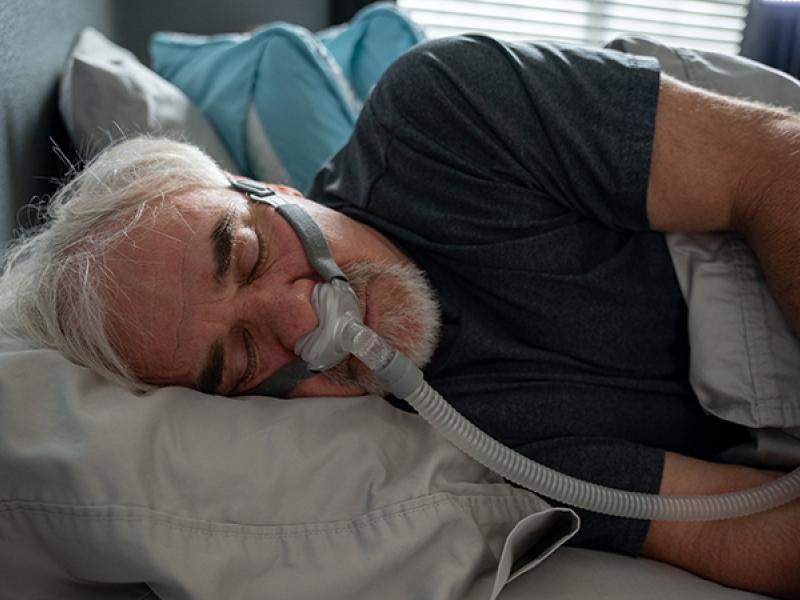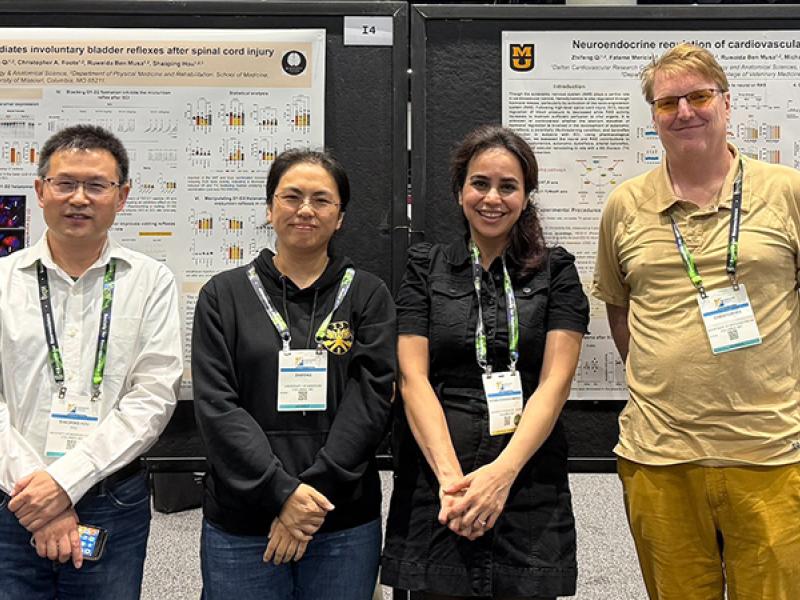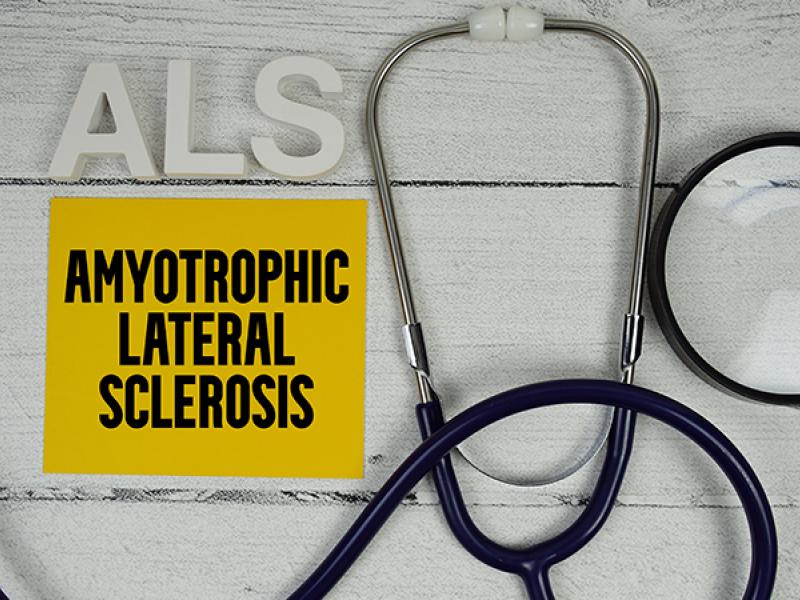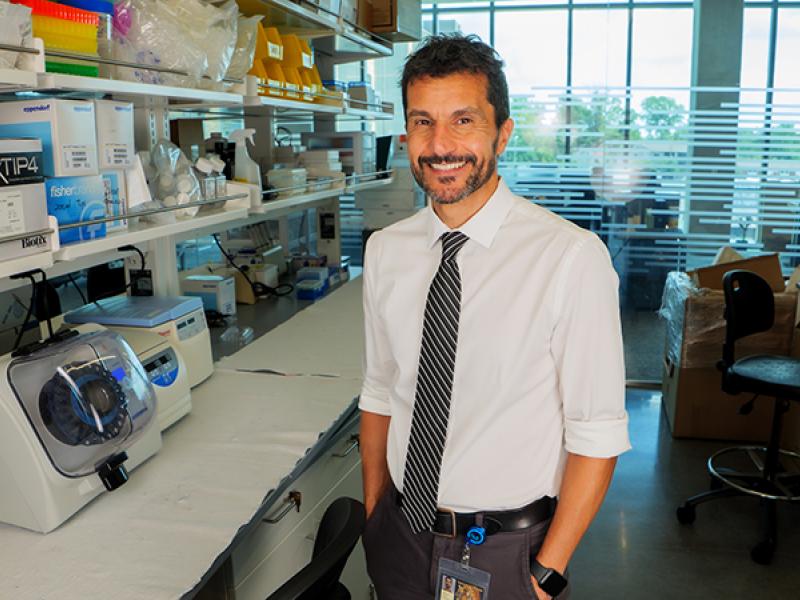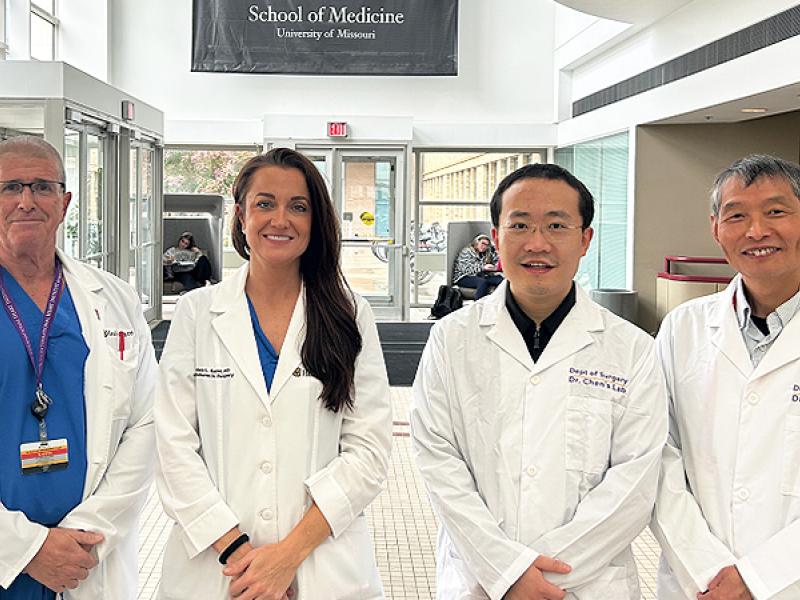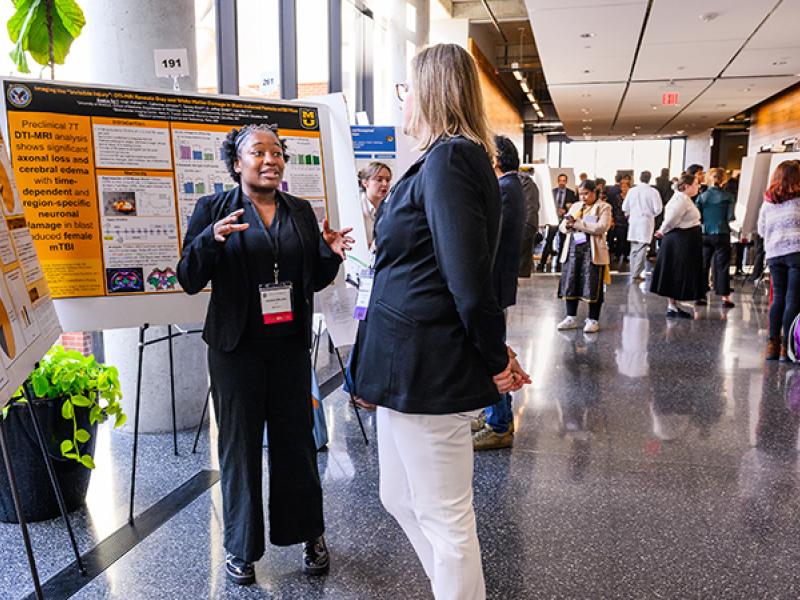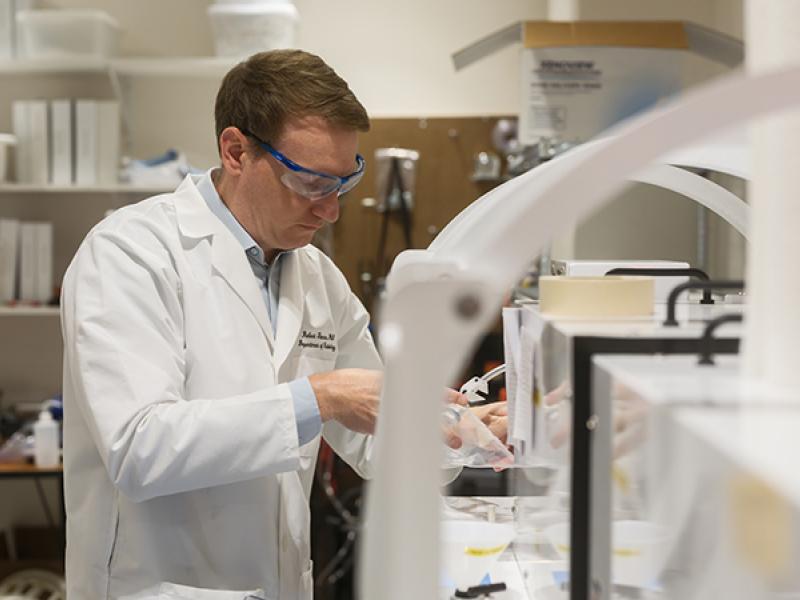(12/12/25) A new study published in npj Aging, one of the leading journals in gerontology and geriatrics, provides compelling evidence that untreated obstructive sleep apnea
...
(12/11/25) Researchers learn that transplanting young nerve cells to the spinal cord injury site improved cardiovascular health.
...
(12/10/25) Bill Janes is on a mission to improve life for people with amyotrophic lateral
...
(12/3/25) Mizzou researchers identify genes linked to chronic kidney disease, opening doors for new treatments
...
(12/2/25) Mizzou researchers create first humanized model of aortic valve calcification, paving the way for
...
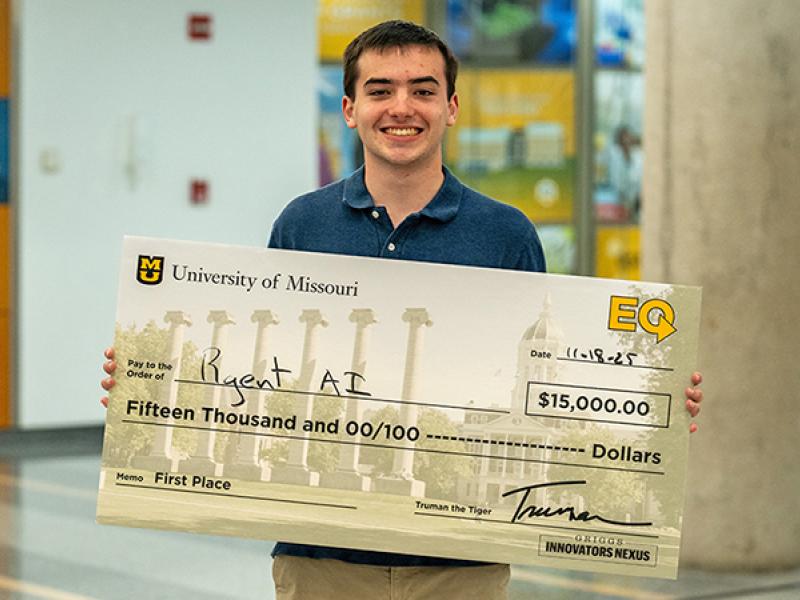
Awards and Honors
Bresette places first at EQ competition, earns $15,000 prize
(11/25/25) Nathan Bresette’s venture “RgentAI” won Mizzou’s EQ competition, earning $15K to grow his AI
...
(11/21/25) University of Missouri School of Medicine and Sinclair School of Nursing HSRD 2025 featured
...
(11/20/25) MU researcher earned $1.8M NIH grant to study lung vasculature in asthma using xenon
...


